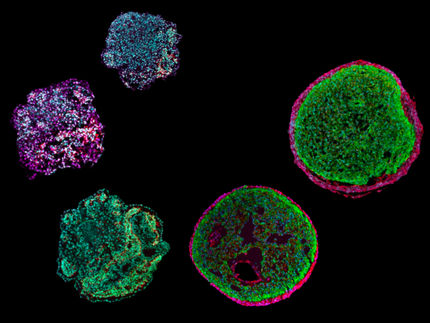EPO for the Brain
Engineered Moss produces human hormone without doping activity
erythropoietin (EPO) is a human protein hormone that is predominantly produced in kidneys. It plays a major role in the formation of red blood cells, a process known as erythropoiesis. EPO is commonly used to treat and prevent anaemia in nephrology and cancer patients. Today this pharmaceutical is produced as recombinant human EPO in animal cell cultures, especially in Chinese hamster ovary (CHO) cells. EPO is the leading biopharmaceutical with a world-wide market of about ten billion Euro per year. This hormone has a bad reputation in the public due to its abuse in unethical and illegal doping of athletes.
More recently it was shown that in the human body EPO is made in different tissues when oxygen supply is limited. In these cases the hormone protects these tissues by inhibiting apoptosis, a cell death program that occurs in stress conditions. In this context EPO is a potential treatment for stroke, diabetes-induced eye damage and peripheral nerve injury.
In the human blood, the EPO protein has attached several complex sugar structures which make up to 40% of its molecular mass. These sugar moieties modify half-life and function of the hormone in the human body. A specific form of this complex glycoprotein, the asialo-EPO, can provide tissue protection but does not stimulate red blood cells. Thus, recombinant asialo-EPO is regarded as a safe drug as it has no potential doping activity.
Scientists from the Chair of Plant Biotechnology of the University of Freiburg, Germany, around Dr. Eva Decker and Professor Ralf Reski and from the Freiburg-based biotech company greenovation have genetically engineered the moss Physcomitrella patens in such a way that it now produces recombinant human asialo-EPO in the moss bioreactor. Attachment of the correct sugar moieties to the recombinant protein was proven by Professor Friedrich Altmann from the University of Natural Resources and Life Sciences in Vienna, Austria.
The collaborative work was supported by the German Federal Ministry for Education and Research (BMBF) and by the Baden-Württemberg Stiftung. The researchers published their results in the current online-version of the Plant Biotechnology Journal.
Eva Decker explains: “Asialo-EPO is hard to produce in animal cell cultures. In contrast, the genetic engineering performed in moss did not alter growth or performance of the plants. We, therefore, suggest the moss bioreactor as the system of choice for the production of this potentially neuroprotective protein.”
Ralf Reski, a co-founder of greenovation and currently Senior Fellow at the Freiburg Institute for Advanced Studies (FRIAS) says: “This exciting new protein is the result of a combination between plant biotechnology and synthetic biology we are dedicated to in our Freiburg-based research cluster of excellence, BIOSS. We hope that its potential as biopharmaceutical will be assessed soon.” FRIAS and BIOSS are both funded by the Excellence Initiative of the German Federal and State Governments.
Original publication
Juliana Parsons, Friedrich Altmann, Claudia K. Arrenberg, Anna Koprivova, Anna K. Beike, Christian Stemmer, Gilbert Gorr, Ralf Reski, Eva L. Decker: "Moss-based production of asialo-erythropoietin devoid of Lewis A and other plant-typical carbohydrate determinants." Plant Biotechnology Journal 2012.
Most read news
Original publication
Juliana Parsons, Friedrich Altmann, Claudia K. Arrenberg, Anna Koprivova, Anna K. Beike, Christian Stemmer, Gilbert Gorr, Ralf Reski, Eva L. Decker: "Moss-based production of asialo-erythropoietin devoid of Lewis A and other plant-typical carbohydrate determinants." Plant Biotechnology Journal 2012.
Topics
Organizations
Other news from the department science

Get the life science industry in your inbox
By submitting this form you agree that LUMITOS AG will send you the newsletter(s) selected above by email. Your data will not be passed on to third parties. Your data will be stored and processed in accordance with our data protection regulations. LUMITOS may contact you by email for the purpose of advertising or market and opinion surveys. You can revoke your consent at any time without giving reasons to LUMITOS AG, Ernst-Augustin-Str. 2, 12489 Berlin, Germany or by e-mail at revoke@lumitos.com with effect for the future. In addition, each email contains a link to unsubscribe from the corresponding newsletter.




















































